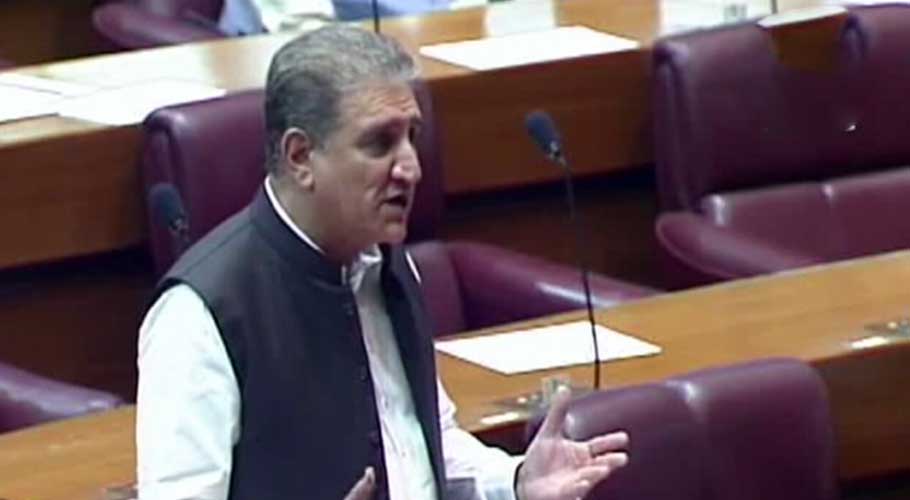ISLAMABAD: Foreign Minister Shah Mahmood Qureshi began to acknowledge that the opposition had the right to table a no-trust motion against the prime minister, but said that defending it was his obligation. “We intend to fight it in constitutional, political and democratic manner,” he asserted.
Talking about constitutional violations on the floor of the assembly, he said that it was obligatory “on us to respect the Constitution”. “As the prime minister said yesterday, he is disappointed but has accepted the court’s decision,” Qureshi said, referring to PM Imran’s late night address on Friday.
“Pakistan’s history is full of constitutional violations,” he said. The minister went on to say that the doctrine of necessity should have been buried, voicing his happiness at the “evolution” of Pakistan’s democracy.
Qureshi also presented the stance of the prime minister, saying that he was disappointed but respected the court’s orders. He also added that NA proceedings were being conducted in accordance with the court’s orders.
Read more: Shehbaz asks NA speaker to hold voting on no-confidence motion
“Today is Saturday and the session has started at 10:30am. The court said the session will not be prorogued unless the process of Article 95 and rule 37 is concluded,” he said.
However, it is important to present the context under which the court directed to summon the session again. He said that the clock was turned back and the apex court unanimously dismissed the April 3 ruling.
He reiterated that the government had accepted the court’s decision but questioned why the opposition parties went to the court and why the SC took suo motu notice. “The ruling the deputy speaker gave when he was chairing the session […] he did not reject the constitutional process. He said a new situation had surfaced and that it should be probed in its light.”
Qureshi added that the National Security Committee (NSC), one of the country’s top forums, had seen the cable — purportedly containing evidence of a foreign plot against the government — and concluded that it was a sensitive matter.
“The NSC took two decisions. First, they acknowledged there were interference in Pakistan’s internal matters and that a demarche must be issued,” he said, adding that the Foreign Office followed these directives.



































